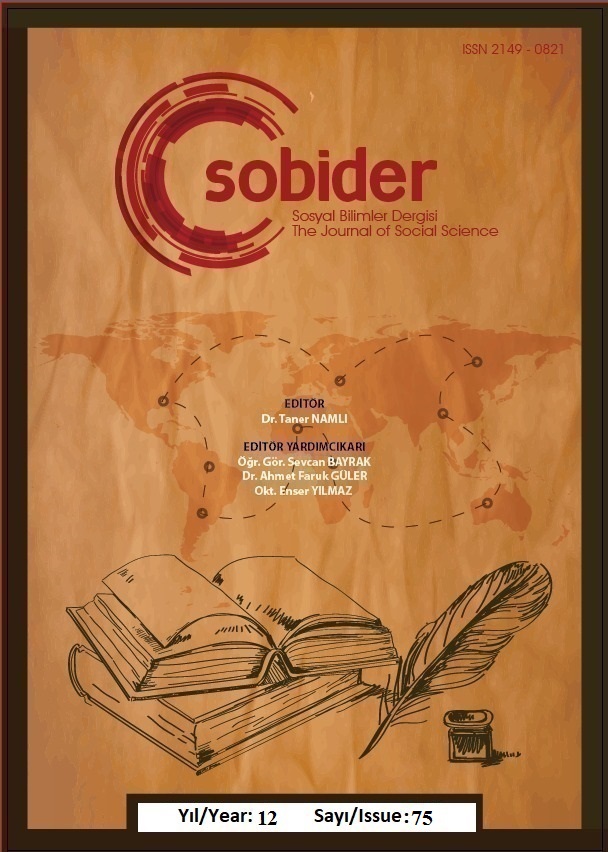Author :
Abstract
Bu çalışma; Bitlis ilinde bulunan ortaokul öğrencilerinin etik davranışlara yatkınlık durumlarında, beden eğitimi ve oyunların rolünün incelenmesi amacıyla yapılmıştır. Çalışma grubu, 111’i kadın, 108’i erkek olmak üzere toplam 219 öğrencilerinden oluşmaktadır. Araştırmada nicel araştırma yöntemlerinden betimsel tarama modeli kullanılmıştır. Araştırmada veri toplama aracı olarak Kaya (2015) tarafından geliştirilen “Etik Davranışlara Yatkınlık Ölçeği” ve araştırmacı tarafından oluşturulan kişisel bilgi formunda; öğrencilerin etik davranışlara yatkınlık düzeylerinin belirlenmesi amacıyla beden eğitimi ve oyun etkinliklerinden oluşan değişkenler aracılığı ile cinsiyet, sınıf düzeyi, Okul yaşamından memnuniyet durumu; Oyunda, rakibimi durdurmak için sakatlamayı göze alıp faul yaparım; Yenildiğim zaman rakip kim olursa olsun onu tebrik ederim; Oyunu kazandığımız zaman karşı takım oyuncusuyla dalga geçerim; Yenildiğim zaman başarısız olan takım arkadaşlarımı suçlarım; Kazansam da kaybetsem de oyundan sonra rakip takım oyuncusu ile el sıkışırım; Kazanmak için gerekirse hile yaparım; Rakibimin gözünü korkutmak için topa sert müdahale ederim; Bir rakibim incindiğinde, rakibimin yardım alabilmesi için oyunun durdurulmasını isterim değişkenleri analiz edilmiştir. Sonuç olarak; öğrencilerin spor aktiviteleri sırasında gösterdikleri etik davranışların, onların genel etik değerlere yatkınlığını artırabileceğini destekler nitelikte olduğu görülmektedir. Ayrıca sporun sadece fiziksel bir aktivite değil, aynı zamanda etik değerlerin gelişmesine katkıda bulunan bir alan olduğunu sonucuna varılmıştır.
Keywords
Abstract
This study was conducted to examine the role of physical education and games in the predisposition of secondary school students in Bitlis province to ethical behaviours. The study group consists of a total of 219 students, 111 of whom are female and 108 of whom are male. In the study, descriptive survey model, one of the quantitative research methods, was used. As a data collection tool in the study, the ‘Scale of Predisposition to Ethical Behaviours’ developed by Kaya (2015) and the personal information form created by the researcher were used to determine the level of students' predisposition to ethical behaviours through variables consisting of physical education and game activities such as gender, class level, satisfaction with school life; In the game, I risk injury and foul to stop my opponent; When I am defeated, I congratulate the opponent no matter who he/she is; When we win the game, I make fun of the opposing team player; When I am defeated, I blame my unsuccessful teammates; Whether I win or lose, I shake hands with the opposing team player after the game; I cheat if necessary to win; I tackle the ball hard to intimidate my opponent; When an opponent is hurt, I want the game to be stopped so that my opponent can get help. As a result, it is seen that the ethical behaviours shown by the students during sports activities can increase their predisposition to general ethical values. In addition, it was concluded that sport is not only a physical activity but also a field that contributes to the development of ethical values.





